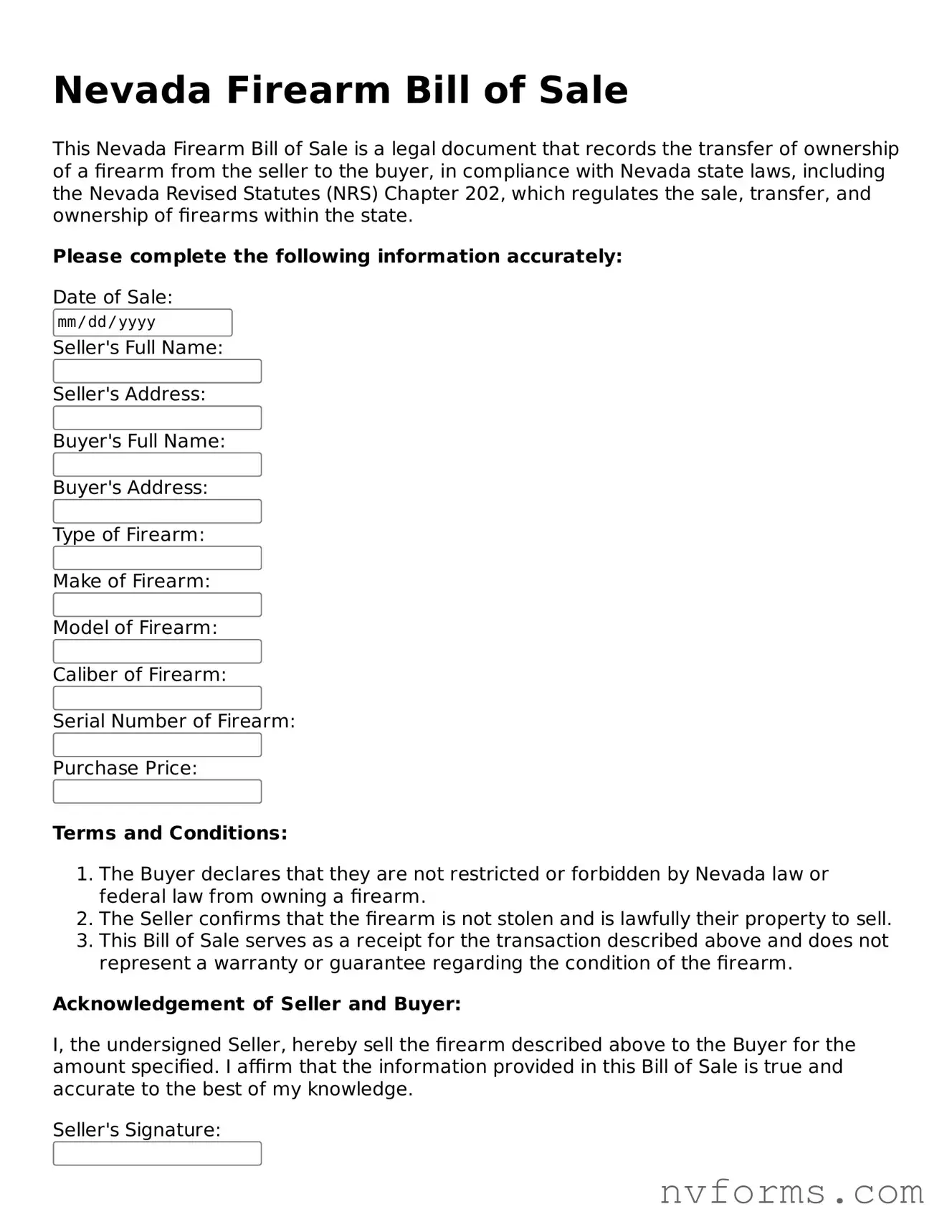Free Firearm Bill of Sale Form for Nevada
The Nevada Firearm Bill of Sale form is a legal document indicating the transfer of ownership of a firearm from a seller to a buyer in the state of Nevada. This important form not only records the details of the transaction but serves as proof of the buyer’s right to own and possess the firearm legally. It ensures both parties comply with state laws and regulations governing firearm sales.
Launch Editor

Free Firearm Bill of Sale Form for Nevada
Launch Editor

Launch Editor
or
⇩ Firearm Bill of Sale File
Don’t stop now — finish the form
Finish Firearm Bill of Sale online using an easy step-by-step flow.